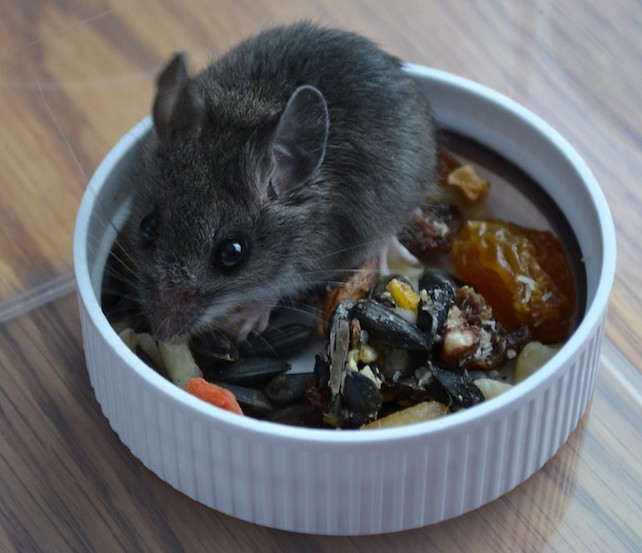Fasting, or abstaining from food, is an ancient human tradition. It's often associated with cultural or religious customs, but people around the world also commonly fast in hope of better health.
Many employ what is referred to as intermittent fasting, a broad term for various ways of alternating between eating and fasting periods. Research suggests it's safe for many people, and may offer health benefits, but there are important caveats.
Intermittent fasting can be risky for some people, experts warn, and while it has been linked to benefits like weight loss and lower inflammation, more research is needed to test many of its more popular claims – and to reveal unwelcome quirks.
A new study, for instance, links intermittent fasting with slower hair regeneration in mice. A similar effect might occur in humans, based on a small clinical trial the authors also conducted.
This news shouldn't overshadow the potential benefits of intermittent fasting, says senior author Bing Zhang, a stem cell biologist at Westlake University in Zhejiang, China. But it's a reminder of how much we still don't know, he adds, and how any health benefits might come with surprising side effects.
"We don't want to scare people away from practicing intermittent fasting, because it is associated with a lot of beneficial effects. It's just important to be aware that it might have some unintended effects," Zhang says.
Previous studies suggest intermittent fasting can boost the stress resistance of some stem cells, Zhang and his colleagues explain, including those associated with blood, intestinal, and muscle tissue. Yet it's unclear how the practice affects more peripheral tissues like skin or hair.
The researchers thought fasting might also aid regeneration in those tissues, so they decided to investigate. They put shaved mice in one of two intermittent-fasting groups, or in a control group with unlimited food access, then monitored the regrowth of each group's hair.
Some mice went on a time-restricted feeding schedule, with 8 hours of food access daily and 16 hours of fasting. Others received alternate-day feeding, switching between food days and fast days every 24 hours.

Not only did both fasting plans fall short of expectations, but to the researchers' surprise, hair regeneration was slower in the fasting mice.
Mice in the control group (with unlimited feeding) regrew most of their hair in 30 days, the study found, while both groups of fasting mice still showed only partial regrowth after 96 days.
Why? Digging deeper, the researchers discovered hair-follicle stem cells (HFSCs) couldn't handle the imbalance of free radicals and antioxidants introduced by switching between glucose and fat.
HFSCs naturally toggle between active and dormant phases, and new hair can only grow if the stem cells shift back to active.
In the control group, HFSCs returned to activity about 20 days after the mice were shaved, the study found, and remained active until the hair was regrown.
In fasting mice, however, HFSCs experienced apoptosis – programmed cell death – during prolonged periods without food.
The researchers attribute this to a spike in free fatty acids around hair follicles, which led to an accumulation of reactive oxygen species in the stem cells.
In vitro tests showed a similar effect in human HFSCs, which also underwent apoptosis in response to abundant free fatty acids.
"During fasting, adipose tissue starts to release free fatty acids, and these fatty acids enter the HFSCs that were recently activated, but these stem cells don't have the right machinery to use them," Zhang says.
The outer layer of skin cells, on the other hand, seemed unfazed by fasting. This might be due to their higher antioxidant capacity, since HFSCs also proved less vulnerable to fasting-induced apoptosis when researchers genetically enhanced their antioxidant capacity and topically applied the antioxidant vitamin E.
In the clinical trial, Zhang and his colleagues recruited 49 healthy young adults to see how intermittent fasting might affect their hair growth.
People randomly assigned to a time-restricted diet (18 hours of fasting daily) did regrow hair more slowly than those in a control group, but that's a preliminary finding from one small trial. Longer studies with larger sample sizes will be needed before we know how fasting affects human hair growth.
"The human population is very heterogeneous, so the effects might be different for different people. Mice also have a very high metabolic rate compared with humans, so fasting and metabolic switching have a more severe effect on mouse HFSCs," Zhang says.
"We see a milder effect in humans – there are still apoptotic stem cells, but many HFSCs survive," he adds. "So there is still hair regrowth; it's just a little bit slower than usual."
The researchers plan to continue this work by studying how other tissues react to fasting, Zhang says, and by learning more about the mechanics involved.
"We also want to figure out how fasting impacts skin wound healing," he says, "and identify metabolites that could help the survival of HFSCs and promote hair growth during fasting."
The study was published in Cell.
